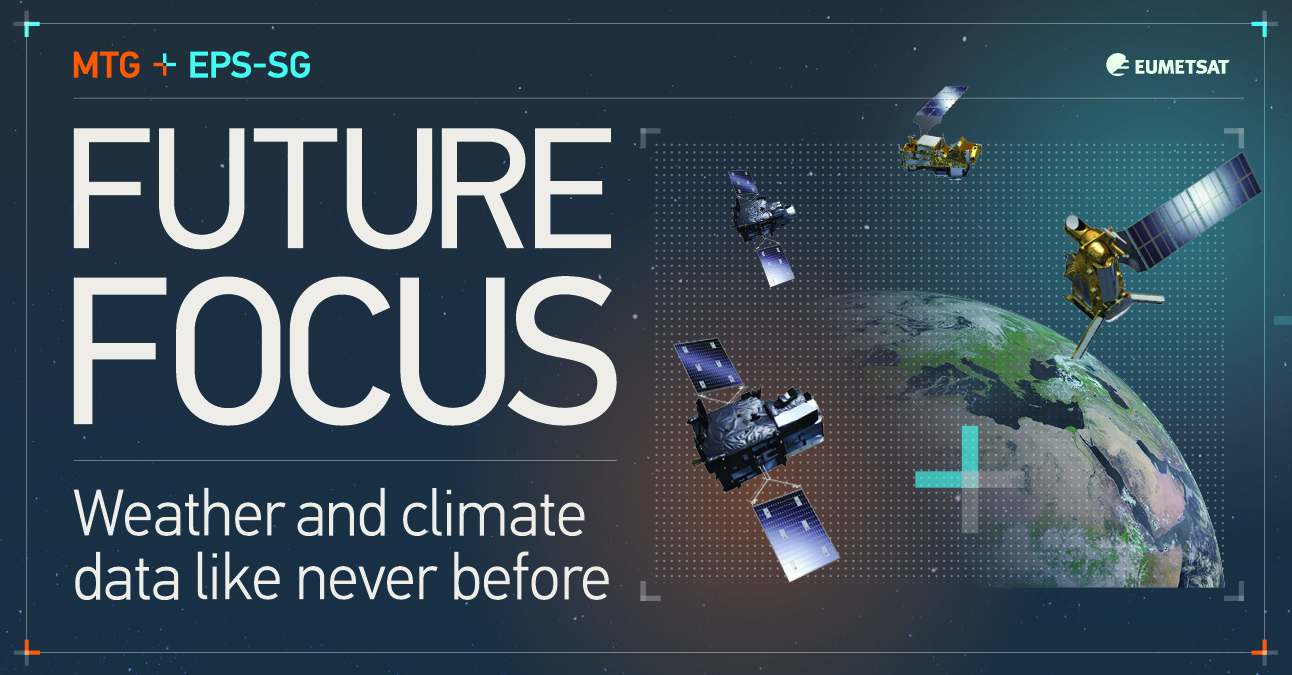
Be a part of the EGU2020
Sharing Geoscience Online events


With the official cancellation of the annual European Geophysical Union (EGU) General Assembly originally scheduled to take place on 04-08 May in Vienna, we are pleased to announce that all is not lost and a week-long series of online activities will take place instead.
09 November 2020
27 April 2020
Due to the current COVID-19 situation, this year’s assembly has been partially replaced by a series of events called “EGU2020: Sharing Geoscience Online” and includes several online training sessions organised by EUMETSAT and partners, accessible via the official website .
The annual EGU General Assembly usually attracts more than 15,000 participants from all geoscience backgrounds, therefore, it is very beneficial that there are alternatives available.
As part of the EGU2020 Sharing Geoscience Online “Townhall” events, Bojan Bojkov, Head of the Remote Sensing and Products Division at EUMETSAT will be presenting on the following topic:
European research opportunities and priorities for the next generation of meteorological satellites
Taking place on 29 April 2020 at 11:30-12:30 UTC as an open online event, participants can take part by using the Zoom videoconferencing tool and joining the meeting here .
The Townhall convener is Stephan Bojinski, Meteosat Third Generation User Preparation Project Manager at EUMETSAT. The target audience for this Townhall event will be researchers and academia interested in using innovative satellite data for meteorological and related environmental research. The presentation will be followed by a Q&A session via the Slido tool here . (Meeting code: #nextgen-metsat)
In the first half of the 2020s, EUMETSAT, together with partners the European Space Agency (ESA), will be launching the next generation of meteorological satellites. These will provide a continuity of service for the current Meteosat and European Polar System (EPS) satellites, as well as extensive opportunities for innovation in meteorological and environmental research.
In addition to higher spectral, spatial and time-sample images, Europe will have, for the first time, an infrared sounder, lightning imager and the Copernicus Sentinel-4 sounder in the ultraviolet, visible and near-infrared spectrum from a geostationary orbit.
From a polar orbit, there will be global coverage from the novel ice cloud imager (ICI), microwave imager, multi-viewing multi-channel multiple-polarisation imaging (3MI) instruments, as well as the instruments building upon the EPS heritage.
The data from each of these instruments offers great potential for use in atmospheric process studies (e.g. aerosols, clouds, precipitation-related), weather and climate modelling and environmental systems research. In addition, the co-location of instruments on the same platform also offers research and development potential.
For exploiting the scientific value of the data as soon as it is operationally available, the research and academic communities need to approach national and European science agencies in order to establish priorities and to put in place the necessary support mechanisms.
The Townhall event will be complemented by a live chat session on this topic, organised as part of the EGU2020 Sharing Geosciences Online week. The chat will take place on 5 May 2020 at 17:00-18:00 UTC by joining here .
In addition to the Townhall event, as part of EGU2020, EUMETSAT organises short training courses on atmospheric composition, climate and marine data, which can be found here .
| Section | Title of the section | Title of the presentation | Url | Time of the chat |
|---|---|---|---|---|
| ITS4.8/ESSI4.1 | Data science, Analytics and Visualization: The challenges and opportunities for Earth and Space Science | Reducing Time to Results with EUMETSAT's New Data Services | Click Here | Fri, 08 May, 14:00–15:45 |
| ITS4.1/NP4.2 | Big data and machine learning in geosciences | Data Tailor: Integrate EUMETSAT's data into your datacube | Click Here | Thu, 07 May, 08:30–12:30 |
UPDATE: We now have a full recording of the presentation from 29 April available in case you weren’t able to join.






